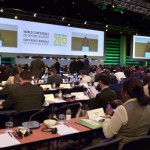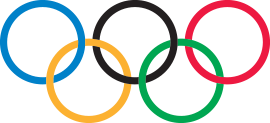The world’s anti-doping community convened in Johannesburg, South Africa from the 12th-15th of November to join leading figures from the world of sport and government with the aim of shaping the future of anti-doping in sport. Over 1,000 representatives of public authorities, the sport movement, the anti-doping community, athletes, observers and media assembled to review major advances made in the fight against doping and to discuss future strategy.
The highlight of the agenda was the approval of the revised WADA Code and four accompanying International Standards. The revised code has been ratified and will be implemented by signatories in 2014 before taking effect on January 1, 2015.
“Doping has been, and continues to be, one of the greatest threats that we face in sport,” said WADA President John Fahey. “Since WADA was formed 14 years ago, we have made huge strides to tackle the scourge of doping, yet today we still face challenges on a number of fronts.
“It is these challenges, and the strategies needed to combat them, that we will discuss over the course of the next four days in Johannesburg. As a community, we can now look forward to helping shape the very future of anti-doping in sport through the approval of what I believe will be the most effective response to tackling this issue yet – the 2015 World Anti-Doping Code.”
Some important initiatives aimed at tackling doping in sport were announced during the conference:
Steroidal Module
WADA President John Fahey today announced the launch of the Steroidal Module for the Athlete Biological Passport. The Steroidal Module tests an athlete’s urine sample to observe unique steroidal variables such as testosterone, therefore making it a useful technique in spotting athlete abuse of Anabolic Androgenic Steroids. The Steroidal Module joins the Haematological Module to complement the Athlete Biological Passport which, overall, aims to identify athletes for further target testing in addition to assisting detection of Anti-Doping Rule Violations (ADRVs).
University Project
In collaboration with the International University Sports Federation (FISU) and Gwangju 2015 Universiade Organizing Committee, WADA has developed an eTextbook and teaching material for first year university students. The anti-doping etextbook is part of an initiative to deliver a full ‘model curriculum’ for university academic staff to educate future practitioners, athletes, coaches and all leaders of sport, on the dangers of doping in sport and their role in combating the issue.
Rules to be matched by practice
Enhancements will be made to rules and processes to assist signatories with the implementation of more effective and intelligent anti-doping programs moving forward.
WADA will then be responsible for an effective monitoring process once the Code and International Standards have been approved. The compliance and monitoring process will be approved by the Foundation Board in May 2014.
WADA Whereabouts App for smartphones
WADA can confirm that it will launch its free Whereabouts app for smartphones at the end of the month. The app, which will be available for iPhone and Android devices, will be of particular interest to those athletes in a registered testing pool who have specific anti-doping responsibilities regarding the provision of whereabouts information to support out-of-competition testing.
Using their smartphone, athletes can enter, check, change and submit their whereabouts details at any time with just a few clicks. Using mobile notifications, it also helps the athletes to remember their obligations to submit whereabouts, including the relevant deadlines to do so.
“The app provides athletes with an easy, accessible way to report their whereabouts and remain in observance of the relevant regulations, thereby demonstrating their commitment to clean sport,” said WADA Director General David Howman. “Everyone benefits from this efficient solution, and we are pleased to offer the app.”
Finally, on the last day of the conference, Sir Craig Reedie was elected as WADA’s new President, taking over from John Fahey whom began his term almost six years ago.
Reedie is a member of WADA’s Executive Committee and Foundation Board, and has also served as Chair of the Organization’s Finance and Administration Committee since 1999. He will begin his term by replacing John Fahey from January 1, 2014. The 72-year-old Scot, a former Chairman of the British Olympic Association (BOA) and current Vice President of the International Olympic Committee (IOC), was elected by the IOC in September as the sporting movement’s preferred candidate for WADA President.
“It is an honour to be asked to lead this international organization, and a challenge that I look forward to,” said Reedie.
Alongside the appointment of Reedie, WADA also announced the election of H.E. Mr. M.A. Stofile as the organization’s next Vice President. Stofile will also begin his term on January 1, 2014. The 68-year-old South African, who served on WADA’s Executive Committee and Foundation Board from 2004 – 2010, replaces Arne Ljungqvist who has served as WADA’s Vice President since 2008.
“I am delighted to have been chosen as the next Vice President of WADA”, said Stofile. “I have long been an advocate of anti-doping and clean sport, and having served on WADA’s Executive Committee and Foundation Board for six years, I have been fortunate to have seen both the organization and the movement evolve.”






